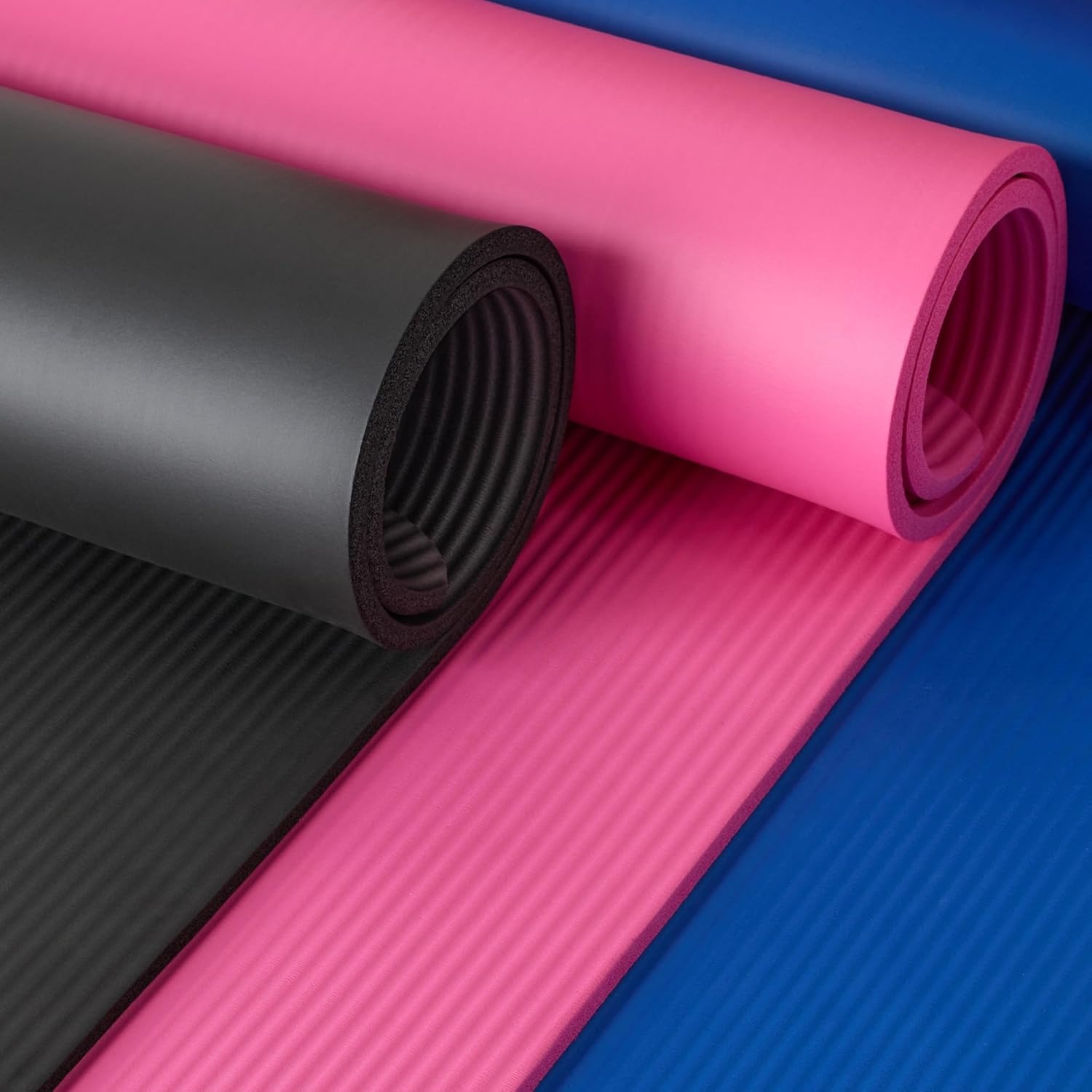Understanding Protein Powder and Its Uses
Protein powders have become a staple in dietary regimens across various lifestyles. Broadly, they serve to increase daily protein intake, which is essential for various bodily functions like muscle repair, hormone production, and cell maintenance. Often associated with athletes or fitness enthusiasts, protein powder is also a convenient option for those looking to manage weight, or just seeking to fortify their meals.
Incorporating protein powder into one’s diet has been simplified over the years. It is no longer just about mixing it into water or milk for a quick shake. These powders can richly complement smoothies, baked goods, oatmeal, and many other recipes. The idea is to enhance the protein content of everyday foods in an easy and often delicious way.
People turn to protein powders for various reasons. Some may be aiming to bulk up muscle, others to aid in weight loss or to speed up recovery after workouts. The versatility in its usage means it can cater to many dietary needs, from the athlete in rigorous training to the busy parent seeking nutritious meal options.
But a common question arises: How long is protein powder good for? Knowing the shelf life, how to spot if it has gone bad, and the best storage practices are key in making the most out of these supplements. Let’s delve into the types of protein powders available and their respective shelf life dynamics in the ensuing sections.

Types of Protein Powders and Their Shelf Life Differences
Protein powders come in many forms. Each has a unique shelf life.
Whey Protein Powder
Whey protein is popular and widely used. It lasts about 9 to 19 months when stored right.
Vegan Protein Powder
Plant-based options have a longer shelf life. They can last for up to two years.
Other Protein Powder Variants
Other variants include casein, hemp, and more. Their shelf life can vary.
How To Determine If Protein Powder Has Gone Bad
Good storage extends your protein powder’s life, but how can you tell it’s gone bad?
Signs of Spoilage in Protein Powder
Noticing signs of spoilage is important. Here’s what to look for:
- A rancid smell is a clear indicator.
- A bitter taste suggests it’s not suitable for consumption.
- Any color changes in the powder are worrisome.
- Clumping, even in a sealed container, is not a good sign.
If you see any of these signs, it’s safer to dispose of the protein’s powder.
The Importance of Expiration Dates and Quality Indicators
Expiration dates are not about safety but quality. Here’s why they matter:
- They suggest how long the product should retain optimal quality.
- Observing dates ensures you consume protein at its most effective.
- Products may still be safe past these dates if stored properly.
- Quality indicators like a ‘best by’ date act as a consumer guide.
For best results, use your protein’s powder before the expiration date. If it’s past the date, check for spoilage signs and trust your senses. Storing protein powders in cool and dry conditions helps maintain their quality, preventing early spoilage. When in doubt, prioritize safety and dispose of questionable protein powder.

Storing Protein Powders for Maximum Freshness
To keep protein powders fresh, storage is key. Here’s how to store your protein powder right.
Ideal Storage Conditions for Protein Powder
For the longest shelf life, keep your protein powder in a cool, dry place. A pantry works well. Aim for a spot around 70。 This temperature is perfect to prevent spoilage. Also, avoid places with high moisture. This means away from the stove or sink. Dry environments help stop clumping and keep your powder fresh.
The Impact of Temperature and Humidity on Protein Powder Shelf Life
High temperatures and moisture shorten protein powder’s life. Heat and humidity speed up spoilage. They cause changes like color shift and bad smell. If powder is exposed to these for too long, it could spoil before the expiration date. Remember the advice from studies: Store your protein below 70癋 and in low humidity to keep it good for longer.
Safety Concerns with Expired Protein Powder
When our protein’s powders reach their expiration dates, it’s natural to wonder about safety. Using out-of-date supplements can cause worry. It’s important to consider whether these powders can still be a safe addition to our diets. Let’s explore the risks linked to consuming expired protein powders and the science explaining protein breakdown over time.
Can Expired Protein Powder Harm You?
Expiry dates are there for a reason. They inform us about the expected lifespan of a product’s quality. If protein powder is past its ‘best by’ date, it may not be harmful immediately. However, there are risks. Old protein powder might lose its effectiveness and could potentially have a negative impact on your health. It’s crucial to evaluate the powder’s condition. Look for spoilage signs like odd smells, discoloration, or clumping. These point to the protein powder going bad. When in doubt, throw it out to avoid any health issues.
The Science Behind Protein Degradation
Over time, protein powder can undergo changes. Amino acids like lysine may break down, known as the Maillard reaction. When this happens, the protein’s ability to support muscle building diminishes. Protein content decreases over months, even under right storage conditions. Quality drops, and we might not get the nutritional benefits we expect. It’s not just about safety. Consuming a less-effective product means we’re not nurturing our bodies effectively. Always check for freshness to ensure that you’re consuming a high-quality supplement.

Creative Uses for Protein Powder Before It Expires
Finding inventive ways to use protein’s powder can ensure none goes to waste. Here are some creative ideas to get the most out of your protein before the ‘best by’ date.
Incorporating Protein Powder into Foods and Recipes
You can blend protein’s powder into much more than just shakes. Consider these options:
- Bake it into muffins, cookies, or bread.
- Stir it into oatmeal or yogurt.
- Add it to pancake or waffle batter.
- Mix it into homemade energy bars or balls.
These methods help you enjoy the benefits of protein powder in varied, tasty ways.
Tips for Using Up Protein Powder Effectively
To avoid waste, try these tips:
- Use protein powder as a flour substitute in recipes.
- Increase the serving in your shake for a protein boost.
- Share it with a friend interested in trying protein supplements.
- Experiment with flavors by adding the powder to new recipes.
Remember to use the powder before it shows signs of spoilage. With a bit of creativity, you can turn protein powder into a versatile kitchen staple.
The Relationship Between Protein Powder Storage and Quality Preservation
Proper storage keeps protein powders at its best. But what is protein powder’s shelf life, and why? Let’s explore the factors that preserve quality.
The Science of Protein Powders Shelf Life
Protein powders shelf life depends on many things. Heat, light, and moisture can affect it. Powders last longer when stored in cool, dry places. Whey protein typically lasts 9 to 19 months. Vegan proteins can last up to two years. Protein loses effectiveness over time. This is due to the breakdown of amino acids like lysine. Keep protein powders away from humidity and heat to slow this process. Stored correctly, they can last until their expiration dates or more.
Best Practices for Extending the Life of Your Protein Powders
Here are some tips to make protein powders last longer. Store it away from light and moisture. A pantry is a good choice. Check the temperature. Aim for around 70 or cooler. Keep it in an airtight container. This stops moisture and air from getting in. Avoid placing it near the stove or fridge. They give off heat that can shorten shelf life. Finally, always seal the container tightly after each use to block out humidity and contaminants. Follow these steps for fresh and effective protein powder every time you use it.

Conclusion: Understanding Protein Powder Shelf Life
When it comes to protein powder, the shelf life varies significantly based on several factors. Most protein powders come with a best-by date printed on the label. This date indicates the period during which the product retains its optimal potency and flavor. However, it doesn’t mean the powder becomes unsafe to consume afterward. Proper storage plays a crucial role in maintaining freshness.
The type of protein powder also impacts its longevity. Whey protein typically lasts about one to two years, while plant-based proteins may last longer due to different preservatives. It’s essential to check for signs of spoilage, such as off odors, discoloration, or clumping. These indicators usually suggest that it would be best to discard the product.
Storage Recommendations
To maximize shelf life, store protein powder in a cool, dry place. Always keep it tightly sealed to prevent moisture exposure, which can lead to clumping and loss of nutritional quality. If necessary, consider refrigerating or freezing the powder, but make sure to use moisture-proof containers to avoid issues.
Regularly inspect your protein powder for freshness. Adhering to best practices ensures that the product maintains its quality, flavor, and effectiveness. Transitioning to new containers can also help combat any potential issues that may develop over time.
In summary, protein powder can remain good for several months or even years when stored correctly. However, being proactive is vital. Checking for signs of spoilage and adhering to storage guidelines ensures that the protein supplement remains beneficial, making each scoop count for health and fitness goals.



